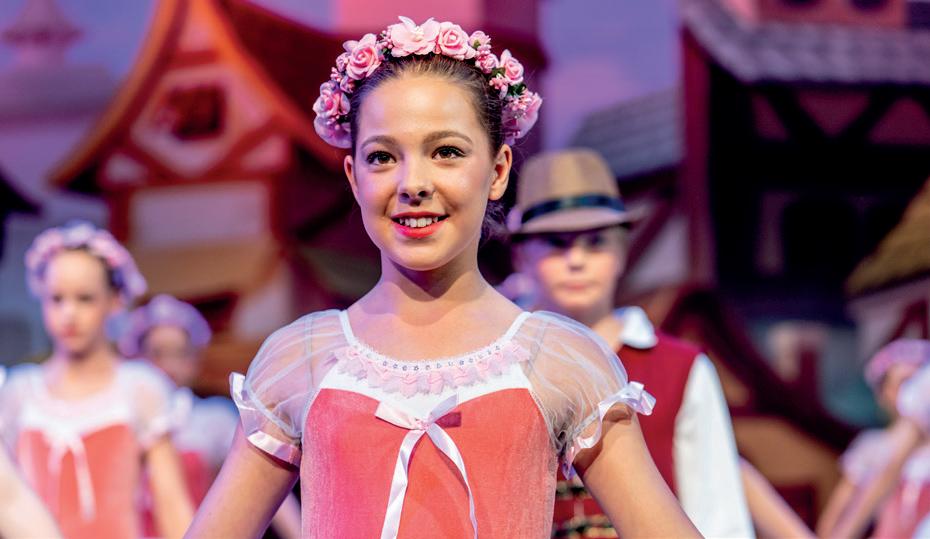
3 minute read
Dance and Drama
The Preparatory School provides the opportunity for school students to develop literacies in Dance and Drama. Students in Years 1–6 attend sessions once a week for two terms. Students in Years 7–8 have a double period for eight weeks.
Dance The focus of dance education is for students to use dance as a creative form of expression. Student-led choreography is the primary focus of the programme at St Andrew’s College.
Students in Years 1–6 continued to develop their skills with a focus on the elements of dance. They shared their in-class work informally with each other and used the language of dance to reflect on the work of others. In the primary years, the Dance curriculum is deeply rooted in dance literacies and creative processes rather than technique-based dance. This allows for a wider range of creativity as students can develop their own ideas.
Years 7 students focused on the Charleston, and Year 8 students learnt a piece of musical theatre choregraphed by Hana Pearce (OC 2019). Within these areas further work strongly focused on the communicating and interpreting strand of the curriculum.
Drama All students from Years 1–8 experienced learning in and about drama during the year. Junior students created imagined worlds and worked in a range of roles using picture books as a springboard to developing character, plot, and narrative. Students working in roles outside the confines of a book applied thinking skills to solve problems rather than relying on being told what to do. This was challenging for them, but most relished the chance to develop their own ideas.
With a brief period online, students changed without fuss to a different way of working. The Year 7 students shared some delightful scripts in costume online which was a fun end to our unit. The Year 8 students all focused on creating short films. A huge range of skills are developed when telling a story in this way. The group communication is essential as well as the ways in which we can translate a story from planning drama in the classroom to being able to translate to a tightly clipped film. The ideas that were shared were rich and varied from exams to babysitters, and the banning of pineapple on pizza. The more efficient editing was created on Mac devices as the software is more diverse and intuitive.
All students had the opportunity to develop their ability to sustain a role that is appropriate to their age and stage of development.
D-Squared (Drama Group) After 16 years, this was the first year D-Squared had the chance to rehearse during the school day as well as lunchtime. This followed the recommendations of the annual report at the end of 2020. A record number of students auditioned for the group and 30 were selected to focus on aspects of performance to accompany the Year 7 and 8 performance project. The aim of the group was to explore a range of types of
theatre and develop strong focused skills in performance. Those in the auditioned group attended D-Squared after chapel until morning tea. This extended time resulted in a range of quality performances.
The students performed an ambitious play The Big Ship Sails based on the true-life experiences of children who were victims of the British Child Migration Scheme that ended in the late 1960s. They devised an original piece of physical theatre based on the rain. They worked in musical theatre, open scripts, and improvisation. This gave the group a wide range of experiences and a real sense of community.
Dance and Drama continued to provide an aesthetic opportunity for students to express thoughts and ideas. This was an important way for students to apply thinking skills and work collaboratively with others and learn about the human experience.
Recommendations for 2022
• If film work continues to be of interest to students in Year 8, it would be good to provide this opportunity; • Continue to have the double period for Years 7–8 students regardless of performance projects; • D-Squared continues to develop student ability in performance and provides the opportunity to perform during the year; • Classroom teachers take greater advantage of the way in which
Drama and Dance can enhance classroom inquiry.








